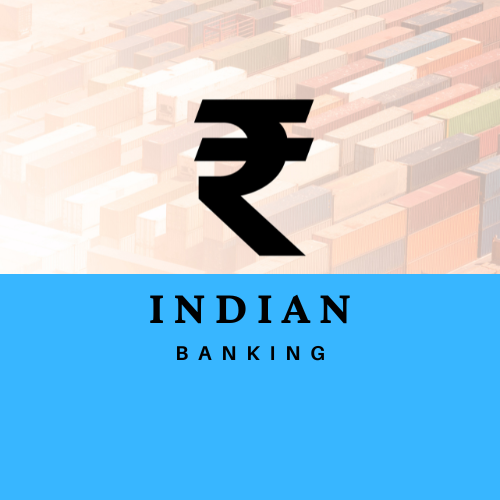Business Loans
Minimum Loan Amount
Minimum Tenure
Minimum Age
Maximum Loan Amount
Maximum Tenure
Maximum Age
Calculate Your Business Loan EMI
Benefits Of Business Loans
Capital for business growth
Business loans provide the necessary capital for expanding operations, investing in new equipment, hiring additional staff, or launching new products/services, enabling businesses to grow and remain competitive.
Build credit history
Timely repayment of business loans helps establish and build a positive credit history for the business, which can be beneficial for accessing larger loans in the future at favorable terms.
Flexibility in end-use
Unlike specific-purpose loans, business loans offer flexibility in how the funds can be utilized. Whether it’s working capital needs, inventory purchase, marketing expenses, technology upgrades, or any other business requirement, the loan can be tailored to suit diverse needs.
Quick access to funds
Many financial institutions in India offer streamlined processes for business loan approvals, allowing entrepreneurs to access funds quickly and efficiently, thereby meeting urgent business needs.
Improvement of credit score
Timely repayment of business loans can positively impact the credit score of the business, making it easier to access credit in the future and potentially at better terms.
Maintain ownership and control
Unlike seeking equity financing where ownership stakes might be diluted, business loans allow entrepreneurs to maintain full ownership and control of their business while accessing the required funds.
Competitive interest rates
With the presence of numerous banks, NBFCs (Non-Banking Financial Companies), and fintech lenders in India, businesses can compare interest rates and choose the most competitive option, helping to reduce borrowing costs.
Support for startups and MSMEs
In India, there are specific schemes and initiatives aimed at supporting startups and Micro, Small, and Medium Enterprises (MSMEs) with access to credit, providing them with the necessary financial support to thrive and contribute to economic growth.
Tax benefits
Interest paid on business loans is often tax-deductible, reducing the overall tax liability of the business and improving its cash flow position.
Customized loan products
Financial institutions offer a range of business loan products tailored to different industries, business sizes, and requirements, allowing businesses to select the most suitable option based on their specific needs.
Myths and facts of Business Loan
Myth: Business loans are only for large businesses.
Fact: Business loans are available for businesses of all sizes, including startups, small and medium-sized enterprises (SMEs), and large corporations. Banks and financial institutions offer various loan products tailored to meet the specific needs of different business sizes.
Myth: It's difficult for startups to qualify for business loans.
Fact: While it can be challenging for startups to qualify for traditional business loans due to lack of business history and collateral, there are several financing options available for startups in India. These include loans backed by government schemes, venture capital funding, angel investors, and startup incubators.
Myth: Banks are the only source of business loans.
Fact: While banks are a primary source of business loans, there are also non-banking financial companies (NBFCs), online lenders, and alternative financing platforms that provide business loans in India. These alternative lenders often offer faster approval processes and more flexible terms than traditional banks.
Myth: Business loans always have high interest rates.
Fact: While interest rates on business loans may vary depending on factors such as the borrower’s creditworthiness, loan amount, tenure, and type of loan, there are many competitive loan options available in the market. By comparing offers from different lenders and maintaining a good credit score, businesses can often secure loans with favorable interest rates.
Myth: Collateral is always required for business loans.
Fact: While some business loans may require collateral, such as property or equipment, there are also unsecured business loan options available in India. Unsecured loans typically have higher interest rates but do not require collateral, making them accessible to businesses that may not have valuable assets to pledge.
Myth: Business loans are only for funding new ventures.
Fact: While business loans can certainly be used to fund new ventures and startups, they are also commonly used for various other purposes such as expansion, working capital, purchasing inventory or equipment, refinancing existing debt, and business growth initiatives.
Myth: Taking a business loan means risking personal assets.
Fact: In most cases, business loans are taken in the name of the business entity rather than the individual owner(s). While personal guarantees may be required for certain types of loans, such as those for startups or small businesses, the risk to personal assets can often be minimized with proper legal structuring and adherence to loan terms.
Myth: It's better to rely on personal savings than to take a business loan.
Fact: While personal savings can be a valuable source of capital for business ventures, relying solely on personal funds may limit growth opportunities and hinder business expansion. Business loans allow businesses to leverage additional capital while preserving personal savings for emergencies or other personal needs.
-
Do assess your business needs: Understand why you need the loan and how it will benefit your business. Whether it’s for expansion, working capital, equipment purchase, or other purposes, have a clear plan in place.
-
Do shop around for the best rates: Research and compare loan offers from different banks, NBFCs, and online lenders to find the most competitive interest rates and favorable terms.
-
Do check eligibility criteria: Before applying for a business loan, ensure that you meet the lender’s eligibility requirements regarding business vintage, turnover, credit score, and documentation.
-
Do prepare a comprehensive business plan: Present a detailed business plan to the lender showcasing your business model, revenue projections, market analysis, and how you plan to utilize the loan funds. A well-prepared business plan can increase your chances of loan approval.
-
Do maintain good creditworthiness: Maintain a healthy credit score by making timely payments on existing loans, credit cards, and bills. A good credit history improves your chances of securing a business loan at favorable terms.
-
Do understand the terms and conditions: Read and understand all terms and conditions associated with the loan agreement, including interest rates, repayment schedule, prepayment penalties, processing fees, and other charges.
-
Do consider collateral options: If you’re applying for a secured loan, carefully consider the collateral options available and ensure you have a clear understanding of the risks involved.
-
Do prioritize loan repayment: Make timely payments on your business loan to avoid late payment penalties, maintain a good credit score, and strengthen your relationship with the lender for future financing needs.
-
Don’t borrow more than you need: Resist the temptation to borrow more than necessary, as it can lead to unnecessary interest costs and repayment burdens on your business.
-
Don’t overlook hidden fees: Be aware of hidden charges such as processing fees, prepayment penalties, late payment fees, and insurance premiums. Factor these into your cost assessment before finalizing the loan.
-
Don’t ignore alternative financing options: Explore alternative financing options such as venture capital, angel investors, crowdfunding, or government schemes, which may offer more favorable terms or better suited to your business needs.
-
Don’t mix personal and business finances: Maintain separate bank accounts and financial records for your personal and business finances to avoid confusion and ensure accurate accounting and tax compliance.
-
Don’t falsify information: Provide accurate and truthful information to the lender during the loan application process. Falsifying information or misrepresenting facts can lead to loan rejection and damage your business reputation.
-
Don’t rely solely on short-term loans for long-term needs: While short-term loans may provide quick access to capital, be cautious about using them for long-term investments or obligations, as the high-interest costs can become burdensome over time.
-
Don’t procrastinate on repayments: Prioritize loan repayments to avoid defaulting on your business loan, which can lead to penalties, legal action, and damage to your credit score.
-
Don’t rush into a loan agreement: Take your time to review and understand all aspects of the loan agreement before signing. Seek professional advice if needed to ensure you’re making a sound financial decision for your business.
Business Loan FAQ’s
Here are some frequently asked questions (FAQs) about business loans in India along with their answers
What is a business loan?
A business loan is a financial product designed to provide capital to businesses for various purposes such as expansion, working capital, equipment purchase, inventory financing, or other business-related expenses. It helps businesses meet their financial needs and achieve their growth objectives.
Who can apply for a business loan?
Any registered business entity, including sole proprietorships, partnerships, LLPs (Limited Liability Partnerships), private limited companies, public limited companies, and MSMEs (Micro, Small, and Medium Enterprises), can apply for a business loan. The eligibility criteria may vary depending on the lender and the type of loan.
What are the types of business loans available in India?
There are various types of business loans available in India, including term loans, working capital loans, machinery loans, equipment financing, invoice financing, trade finance, business overdrafts, business lines of credit, and government-backed loans such as MSME loans or Mudra loans.
What documents are required to apply for a business loan?
The documentation requirements for a business loan may vary depending on the lender and the type of loan. Generally, lenders require documents such as business registration proof, KYC documents of business owners, financial statements (balance sheet, profit and loss statement), bank statements, business plan, GST registration, income tax returns, and any other specific documents requested by the lender.
How much can I borrow with a business loan?
The loan amount you can borrow depends on various factors such as your business’s financial health, creditworthiness, repayment capacity, collateral (if any), and the lender’s policies. Lenders typically offer loan amounts ranging from a few lakhs to several crores of rupees.
What is the interest rate on business loans?
The interest rate on business loans can vary depending on factors such as the lender, loan amount, tenure, collateral (if any), credit score, and prevailing market conditions. Interest rates may be fixed or floating and can range from around 8% to 24% or more per annum.
What is the repayment tenure for business loans?
The repayment tenure for business loans typically ranges from one year to ten years, depending on the lender, loan amount, and purpose of the loan. Some lenders may offer shorter or longer repayment tenures based on the borrower’s requirements and eligibility.
How long does it take to get a business loan approved?
The time taken to get a business loan approved can vary depending on factors such as the lender’s processing time, completeness of documentation, credit appraisal process, and loan amount. While some lenders offer quick approval and disbursement within a few days, others may take longer, especially for large loan amounts or complex applications.
Can I prepay or foreclose a business loan?
Yes, many lenders allow borrowers to prepay or foreclose their business loans before the end of the loan tenure. However, there may be prepayment charges or penalties associated with early repayment, so it’s essential to check the terms and conditions of the loan agreement before making prepayments.
What happens if I default on a business loan?
News & Blog
Recent posts
The term “latest posts” implies that these are the most recently created or published pieces of content. It could include news articles, blog posts, product updates, or any other type of information that the website regularly shares with its audience. The goal is to keep visitors informed about the latest developments or topics of interest on the site.
Indian Banks
Indian banks play a crucial role in the country's financial system, offering a wide range of banking services to individuals, businesses, and government entities. Here are some key points about Indian banks: Types of Banks: Indian banks can be broadly classified into...
How to Increase Your CIBIL Score
Improving your Credit Information Bureau (India) Limited (CIBIL) score is essential for obtaining better loan terms and financial opportunities. Here are some steps you can take to increase your CIBIL score in India: Pay Your Bills on Time: Timely repayment of loans...
Interest Rate Ratio in Indian Banks
As of my last update in January 2023, interest rates on bank loans in India can vary depending on several factors, including the type of loan, the lender's policies, prevailing market conditions, and the borrower's creditworthiness. Here's a general overview of...







